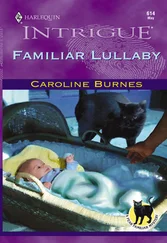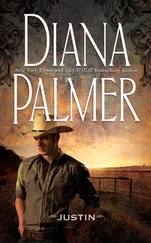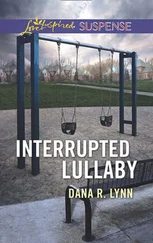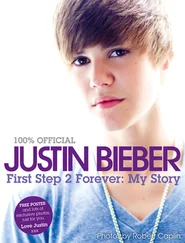With a blue pencil, Arthur makes a check on the top of the page to indicate that he’s looked it through.
Patricia comes in, her eyes half closed with sleep; she’s wearing striped pajama pants and a Van Halen concert tee, gifts from her stupid — as in, soon to be convicted of mail fraud and sentenced to three years in a federal penitentiary — brother.
Arthur pats the dog under the table, stands, kisses Patricia and Gabrielle good-bye, heads into the dark garage — how those unpainted rafters suggest a barn, how the line of windows in the garage door suggest a church. He thumbs the garage door opener, which causes the whole house to shudder — it’s a fine house, respectable, upright, but it doesn’t necessarily feel permanent, as though it might sail away in a strong breeze. Their first winter in the place, after a blizzard dumped a foot of snow, Arthur hadn’t been able to sleep for fear that the roof would collapse and bury the three of them; Cherokee, of course, would survive, would wind up in some clinic for tragic pets, abandoned, farting away his numbered days.
HE PARKS BEHIND the store, unlocks the back door, deactivates the alarm with the weird O-shaped key that reminds him, always, of a smallpox vaccination scar. The photocopiers hum and shake when he flips the main power. He goes through the orders awaiting pickup. Checks to see when their sole employee — what will they do if he decides to enroll full-time at the community college, or if his girlfriend infects him with ambition? — punched out, reads the kid’s entries in the job log.
This essential employee arrives before lunch, bringing with him, from the place near his house, two sandwiches, two sodas, two bags of chips. Then, while the kid watches the counter, Arthur wanders out back to consolidate paper stock, to break down boxes, to stack and shift. A few items for which Patricia had sought amnesty wind up in the Dumpster.
He hears the buzzer that means a customer has come in, figures the kid can take care of it. Arthur looks at his watch, knows the paper truck will be by soon, and pulls the chain to open the loading dock’s roller door. Scalded air rushes in, snatches up a cloud of dust as well as the confetti scraps from the binding puncher.
Dangling his feet off the dock, Arthur eats his lunch.
The delivery arrives: two pallets of boxed paper bound with plastic wrap. Arthur helps the driver wrestle the load across the stamped tongue, off the truck. The driver won’t stick around to check the invoice, even after Arthur reminds him of the time he accidentally delivered 140-lb deckle-edged card stock.
Arthur slices the plastic with a box knife, disposes the wrap out back.
He winds up with an extra box of canary and no fuchsia; he files this fact away — he is very good at remembering facts. Then he washes his hands because the formaldehyde they treat the paper boxes with irritates his skin.
The kid comes back, looking bored. He’s waving an envelope. “Someone left you a present.”
Small businesses run on relationships. You can’t do a corporation a favor, but you can do a person a favor. You can remember a person’s name, ask them how a project went, know something of their days, etc.
The envelope bears the logo of the local TV station. Arthur and Patricia print up their quarterly newsletter. A short sentence in cursive: “Thanks for all your help.”
Inside Arthur finds two slips of perforated 65-lb card stock, tickets to see Jim Cross that night in Richmond.
Arthur holds them before the kid. “You want them?”
“Maybe,” the kid says, “if it was fifteen years ago.”
Arthur slips the tickets back into the envelope.
“Or if like, I don’t know, I didn’t have a TV.”
“Fair enough.”
“Or a girlfriend.” The kid is chasing the joke around the room. “Or a dog.”
Arthur picks up the phone.
“Or if I only had one day to live—”
“I get it.”
“And I wanted for the time I had left to seem much longer than it actually was.”
“Funny,” Arthur says, dialing Patricia.
HIS WIFE IS excited about the tickets. “You know, I thought I saw him once, jaywalking in Fredericksburg. He had on those black Wayfarers and an orange turtleneck sweater.”
“What was he doing there?”
He can hear her flip her wrists the way she does.
“Do you want to go?”
“I wish it wasn’t tonight.” She’s really trying to be disciplined about her eight hours of sleep. She feels better able to cope with things when she’s well rested. “And it’s hard to get a sitter midweek.”
“I know.”
“You should go,” she says.
He says he’s undecided.
“You should.”
WHY AM I writing in the third person? Who am I trying to fool? The answer: I’m trying to fool myself. Because that person who owned a printing shop is a stranger to me; I barely remember living in that house. I certainly don’t remember what it felt like to anticipate seeing Cross play for the first time.
•••
At six, I found myself changed out of my work clothes, in my car, headed to Richmond. I’d been to the theater once, with Gabrielle: a puppet troupe performed Little Red Riding Hood and Jack and the Beanstalk . Gabby spent the whole show hiding behind my coat, unable to watch and unwilling to leave.
An older crowd had assembled for Cross’s concert. Most of the people could have kids in high school. A few college kids, the anti-fraternity crowd, tossed a Frisbee in the parking lot. I regretted that I hadn’t called a friend. If someone asked me if I had tickets to sell, I might have driven home with cash in my pocket. If someone asked, I might have given the tickets away. Nobody bothered asking.
So I headed inside, the spare ticket alone in my pocket.
I walked across the lobby, pushed through the double doors with their porthole windows. My eyes adjusted to that cool darkness — the place looked half full. Bells on women’s anklets tinkled. I watched people smoke marijuana in tight little knots, the twisted cigarettes held backward to ease passing, the way Russians smoke in movies.
After the houselights cut out, the red lights of the Exit signs asserted themselves.
A tall man with a guitar stood beside a pretty woman who appeared to be hiding behind an accordion, the opening act. The duo ran through four or five songs without ever really engaging the audience, as though they had only stopped by on their way somewhere else. They walked off to a smattering of applause. As the curtain glided closed, men in dark clothes shifted equipment on the dimmed stage.
I knew the lights wouldn’t stay down forever. On the other side of the curtain, someone brushed past, sending a ripple across the stage. The crowd yipped and yelped. Feet stomped against the floor, an agreed-upon cadence, a universal rhythm. Over the PA system, a voice like a game-show host’s announced, “Ladies and gentlemen, please help me welcome five-time Grammy winner and Kellogg recording artist. .” The unmistakable whanging of an electric guitar sent the crowd around the bend. Someone gave the signal, made the curtain fly.
NINETY MINUTES LATER, soaked in perspiration, trembling, I called Patricia from the lobby. I told her I didn’t think I was meant to be running a printing company. Where’s this coming from? she asked. I’d discovered something intimate, something intrinsic, that connected me to the other concertgoers. “Come home,” Patricia said. “I’ll make you a drink.”
I said, “What if I’ve found my people?”
“What are you talking about, ‘your people’?” Her patience evaporated. “Stop playing around, Arthur.”
But I was going to Baltimore. I didn’t know anything beyond that.
Читать дальше












